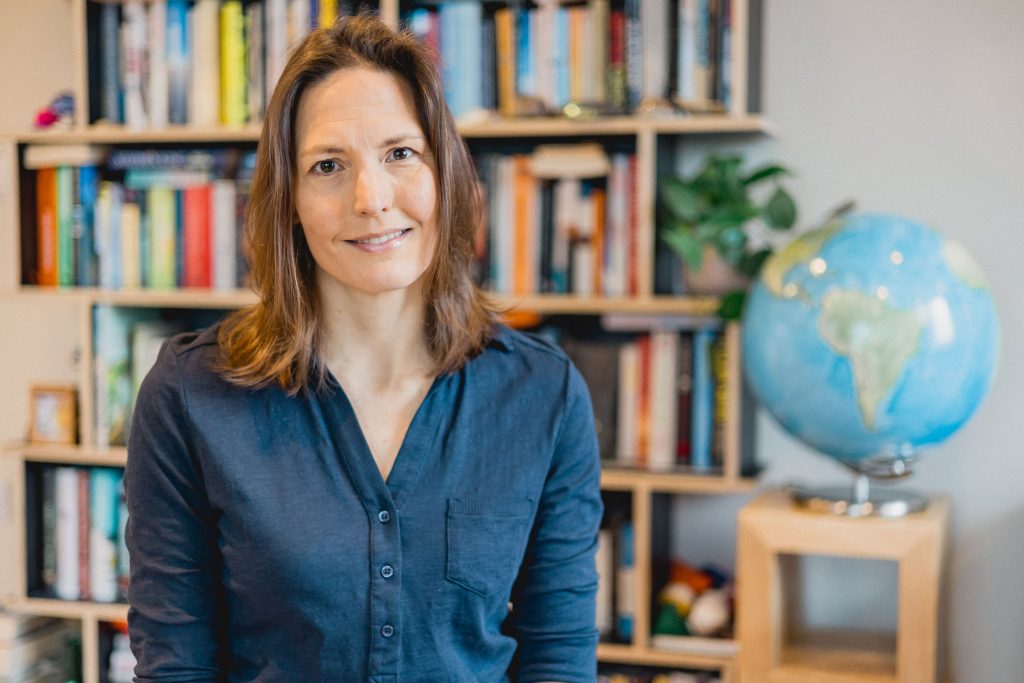Q: Who is Helen Czerski? Tell me a bit about yourself
I’m a bit tricky to categorise – I’m a physicist who studies the ocean surface (breaking waves and bubbles), as an Associate Professor at University College London. But I’ve also been a regular science presenter on the BBC and YouTube channels for the past 12 years, and I’m a writer. I care about physics, the understanding of our planet, and sharing and discussing scientific ideas openly and in a straightforward way. I was born and brought up in Manchester and I’m still very much a northerner at heart, but I’ve moved around a lot since I left for university and now I’m based in London. I’m very sporty and outdoorsy, and I love books.
Q: What fascinates you about the Ocean?
Understanding the ocean is a bit like the three blind men trying to understand an elephant. If you look at it in different ways, or come across it in different contexts, it can seem very different. But it’s all just one system, an engine that is doing things on both the tiniest and the most gigantic scales of both time and space. So tiny bubbles and underwater volcanoes and snails and giant underwater waterfalls are all there, all integrated, and the connections are endlessly fascinating. But more importantly, it is the defining feature of our planet. The Apollo missions to the Moon brought back two of the most important photos ever taken, named Earthrise and The Blue Marble. That was more than 50 years ago, and we’ve told ourselves proudly that we’re a blue planet all that time. But we *never* think about the blue itself – all that water. That’s a huge omission, because once you really think about it, it’s clear that the ocean is the most important feature of our planet. We it’s not just that it’s interesting – it’s that it’s critical..
Q: What inspired you to write this book?
I did undergraduate degrees and a PhD in physics, and I read very widely, and yet when I came to the ocean after my PhD, I was pretty certain that no-one had ever really mentioned it before, at least not in a way that really conveyed what it was. I learned oceanography by working in the field, and it was noticeably hard to talk to anyone else about what we were doing because when I mentioned the ocean, people assumed that I must be a fish biologist, or study dolphins. They couldn’t conceive of studying the water itself. And yet the water forms a giant physical engine that dictates almost everything else on Earth. This is the biggest story on Earth. It is still incredible to me that I’ve never seen a popular science book that even attempts to describe the physical ocean engine. So it felt essential to write this book, and try to patch this gap in our collective knowledge.
Q: What surprised you the most when researching the book?
The ocean is full of surprises, but really the biggest surprise was how little work had already been done to link human history and culture with oceanography. The links are all there, but they’ve barely been explored. The historians tend to just accept that X or Y ocean current exists, and move on. But the reason that the relevant history happened was because the ocean was doing something. We’re still almost completely blind to that.
Q: Isambard Kingdom Brunel was a great engineer. Which scientists inspire you?
I don’t think about the world in those terms. There are, and have been, lots of interesting people doing many interesting and important things. I try to learn from the ones with the best attitude as human beings – the ones who show both determination and humility, alongside empathy, curiosity and good judgement. There are no perfect people, but we can learn from what others did well while accepting that they are human and therefore almost certainly did some other things that we don’t like. I don’t think it’s healthy to idolise people, because it stops you thinking critically about what they did and acknowledging that they weren’t right about everything even if they made gigantic advances in their field.
Hear Helen Czerski talk about her new book in our event Monday 5 June. Doors open at 6.30pm

